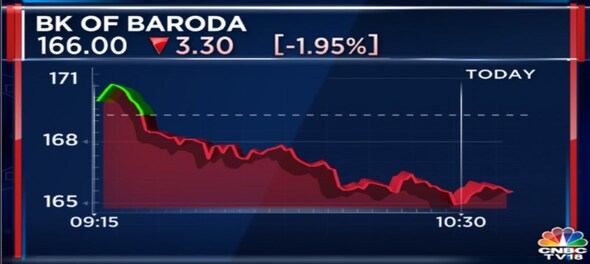
State-owned Bank of Baroda (BoB) has announced an increase in its marginal cost of funds-based lending rate (MCLR) by 5 basis points (bps) across tenors, following the interest rate hike by Reserve Bank of India (RBI) last week. The revised MCLR has come into effect from February 12, 2023, making most consumer loans (like auto or home loans) costlier for borrowers.
Live TV
Loading...
Following the latest rate hike, MCLR has surged from 7.85 percent to 7.90 percent for overnight tenor. The MCLR for one month has risen from 8.15 percent to 8.20 percent while MCLR for three-month tenure has been hiked from 8.25 percent to 8.30 percent, post revision.
| MCLR Tenors | Revised interest rates |
| Overnight | 7.9% |
| One Month | 8.2% |
| Three Month | 8.3% |
Last week, the Reserve Bank of India (RBI) hiked the benchmark policy rate by 25 basis points to 6.5 percent, citing sticky core inflation. It was the sixth time the interest rate has been hiked by the RBI since May last year, taking the total quantum of increase to 250 basis points.
The RBI raised interest rates by 35 bps in December 2022. Rates were hiked by 40 bps in May and 50 basis points each in June, August, and September.
At 02:11 pm, the shares of Bank of Baroda was trading 2.54 percent lower at Rs 165.30 on BSE.
Who will be impacted?
EMIs will get expensive for those who take loans against the MCLR. There is a reset-period for MCLR based loans, after which the rates get revised for the borrower.
Why are loans impacted by RBI's decision?
Generally, when RBI hikes the repo rate, it increases the cost of funds for banks. This means that banks will have to pay more for the money they borrow from RBI. Consequently, banks pass on the cost to borrowers by increasing their loan interest rates, making EMIs costlier.
As a result, both new and existing borrowers witness an increase in their loan interest rates.
(Edited by : Anshul)
First Published: Feb 13, 2023 12:55 PM IST
Check out our in-depth Market Coverage, Business News & get real-time Stock Market Updates on CNBC-TV18. Also, Watch our channels CNBC-TV18, CNBC Awaaz and CNBC Bajar Live on-the-go!


Supreme Court dismisses plea seeking postponement of CA exams; details here
Apr 29, 2024 2:29 PM
Just 8% women candidates contested first two phases of Lok Sabha polls
Apr 29, 2024 12:00 PM
The sexual assault case against Prajwal Revanna — here's what we know so far
Apr 29, 2024 11:36 AM
Repolling underway at one polling booth in Chamarajanagar LS segment in Karnataka
Apr 29, 2024 10:32 AM

